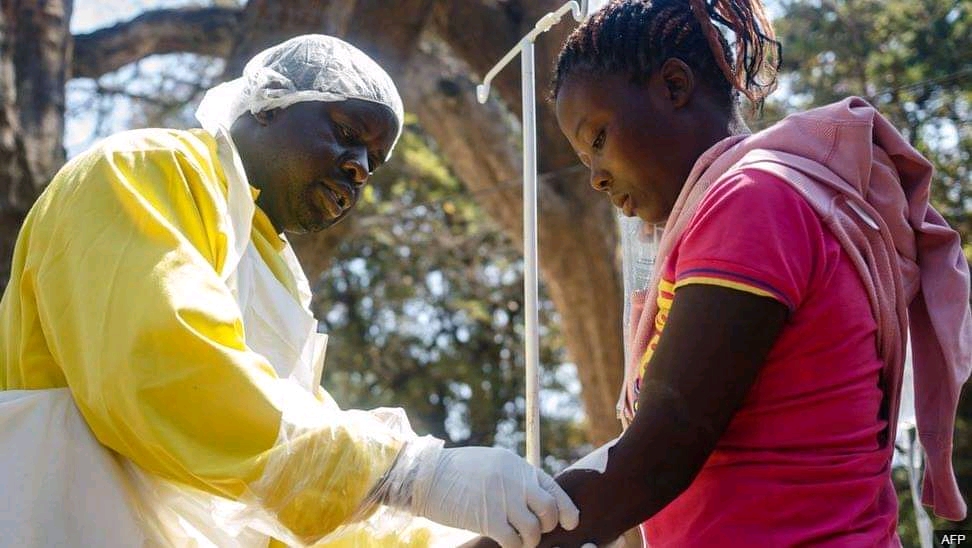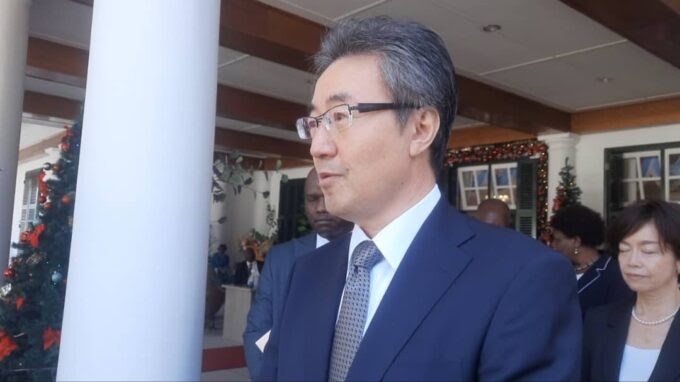By Lisca Philo
In a show of continued cooperation and solidarity between Japan and Zimbabwe, the Government of Japan has announced a grant of USD 774,000 for the emerging cholera response in Manicaland province, Zimbabwe through United Nations Children’s Fund (UNICEF).
Zimbabwe is battling a cholera outbreak that has hit the country and statistics since February 2023 indicate an estimation of 21 000 cases with over 400 of both suspected and confirmed deaths in the past 12 months.
According to the government, 60 districts in Zimbabwe were affected, with hotspots being Harare, Buhera, Gutu, Chiredzi, Mazowe, and Mbire. In terms of provinces, Manicaland and Harare are the hotspot accounting for about 64 percent of the total cholera cases in the country .

Government and its partners have been on the ground to ensure they contain the scourge and avoid future recurrences.
This funding is part of the Government of Japan’s commitment to supporting the most vulnerable people in Zimbabwe and to building resilience against future disease outbreaks.
Communities will benefit from an increase access to healthcare, safe water, and information for the prevention and treatment of cholera. The fund will also support the rehabilitation of sustainable boreholes and water systems to help ensure that people have reliable access to safe water.
Dr Tajudeen Oyewale, UNICEF Representative in Zimbabwe expressed gratitude to the donation in a statement.
“We are extremely grateful to the Government of Japan for this support. This support exemplifies the commitment of Japan to the people of Zimbabwe to address the urgent needs of the affected communities and build resilience in the face of public health emergency,” he said.

The allocated funding will help government, UNICEF and their partners to scale up cholera response in affected areas, improvising access to safe and clean water and rehabilitation for sustainable, climate resilient boreholes to enable supply of safe water and awareness on cholera prevention through mass media platforms and channels.
The ambassador of Japan to Zimbabwe, His Excellency Shinichi Yamanaka said his country hoped for the interjection of the outbreaks of cholera in Zimbabwe.
“l hope that our support will allow the most vulnerable people to recover quickly and rebuild their lives. I also hope it will help prevent the further spread of this disease and future outbreaks,” he said.
Since the start of the cholera outbreak, UNICEF has been working with the Ministry of Health and Child Care and partners to support affected communities, including by providing emergency health supplies and medical products to establish more than 50 cholera treatment centres and more than 90 community oral rehydration points in affected areas.
The organisation has also been providing technical and operational support for the cholera vaccination campaign targeting 2.3 million people in the most affected districts and training more than 2,200 health workers on case management, surveillance, and infection control in treatment facilities.
In terms of critical water, sanitation, and hygiene supplies, UNICEF has reached more than 260,000 in different parts of the country.
Using robust campaign strategies, UNICEF has also reached 5 million people with messages on health-and-hygiene measures to prevent cholera and the importance of seeking medical treatment early, particularly for children.
These efforts are complementary to the government and other partners. Recently government, through Minister of Health and Childcare Dr Douglas Mombeshora, announced that more than 300 boreholes have been drilled in the recent response across the country as the battle against Cholera continues, hence continued support from partners will further bolster the drive towards a cholera free Zimbabwe.
Regarding the rural WASH sector, Minister of Agriculture Dr Anxious Masuka said government intends to drill 35 000 boreholes in 35 000 villages with 2 600 having been sunk across the country so far.

Under the schools WASH programme, Masuka said an additional 10 000 boreholes in 10 000 schools are set to be drilled as well to ensure that there is safe water.
Funding from partners will turn these targets into realities.

